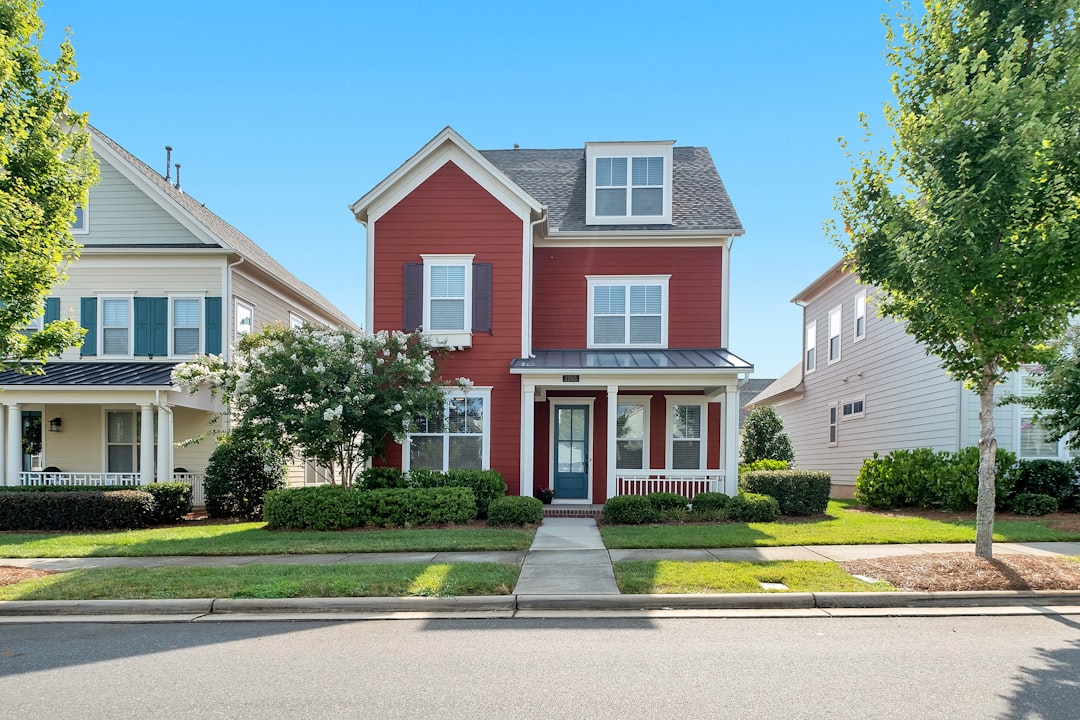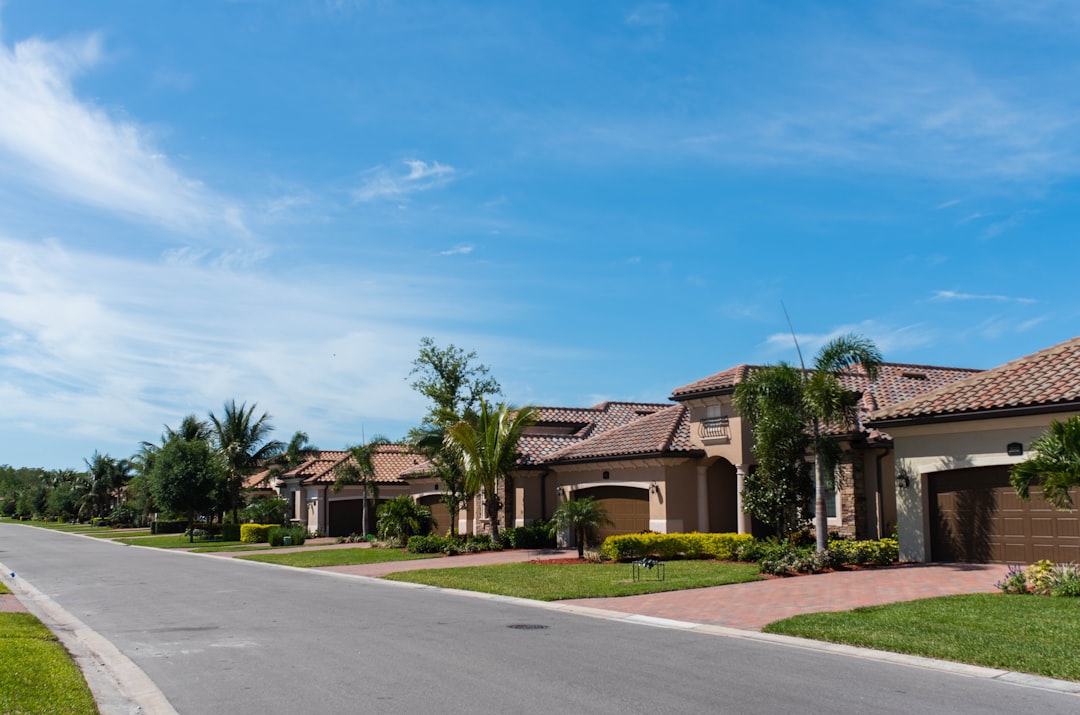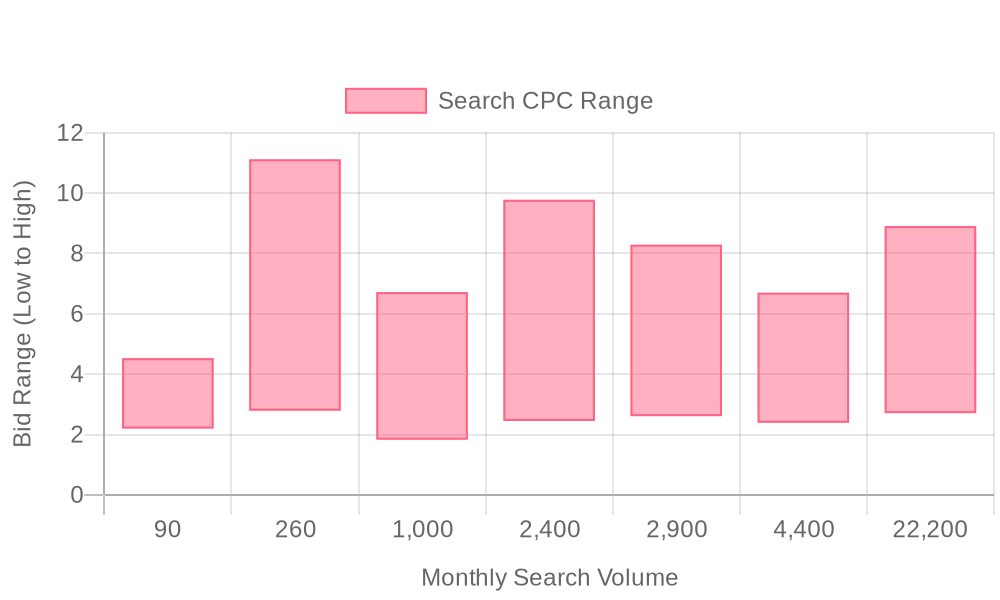
Supercharge your lead generation with a FREE Google Ads audit - no strings attached! See how you can generate more and higher quality leads
Get My Free Google Ads AuditFree consultation

No commitment
Supercharge your lead generation with a FREE LinkedIn Ads audit - no strings attached! See how you can generate more and higher quality leads
Get My Free Google Ads AuditFree consultation

No commitment
Supercharge your lead generation with a FREE Meta Ads audit - no strings attached! See how you can generate more and higher quality leads
Get My Free Google Ads AuditGet My Free LinkedIn Ads AuditGet My Free Meta Ads AuditFree consultation

No commitment
Supercharge your lead generation with a FREE Google Ads audit - no strings attached! See how you can generate more and higher quality leads
Get My Free Google Ads AuditFree consultation

No commitment
In today's competitive real estate market, digital advertising solutions such as Google Ads are increasingly vital. For real estate developers, capturing attention at the perfect moment is essential to drive lead generation and increase property sales. Google Ads offers a strategic advantage—enabling developers to reach qualified prospects actively searching for real estate development projects, while also tracking interactions through to offline conversions. This approach unifies both digital and traditional marketing efforts, making Google Ads an indispensable tool in your marketing stack.

A high-performing Google Ads strategy for real estate development hinges on granular targeting, persuasive creative, and relentless optimization. Prospects in this space typically research multiple developments before engaging, so capturing attention and nurturing intent at every stage is critical for efficient lead generation. To further understand advanced strategies for this vertical, check out this comprehensive guide to Google Ads for real estate.
This guide delivers a practical, tactical roadmap for marketers, developers, and property management teams aiming to drive qualified leads and maximize ROI through Google Ads. The following framework balances proven best practices with advanced, data-driven techniques to help you outpace competitors and unify prospect data across channels. For more tactical resources, explore our library of marketing playbooks.
In real estate development, where prospects often explore multiple projects before engaging, leveraging advanced audience strategies and unified data is essential for maximizing visibility and capturing high-value leads. With the right framework and tools, every stage of the campaign lifecycle becomes a data-driven opportunity to drive better results in real estate lead generation. Ready to transform your lead generation? Get started for free with Sona.

Real estate development faces unique hurdles in connecting projects to high-intent buyers and investors, especially as traditional marketing channels lose effectiveness. Modern digital buyers expect immediate, relevant information about new developments, and the ability to act quickly as market conditions shift.
To accelerate your real estate marketing strategy, get started for free with Sona and experience the impact of unified data and precision targeting.

A multi-campaign approach, anchored by precise targeting and real-time audience updates, enables real estate development teams to engage prospects at all stages of the buyer journey. By integrating campaign management with unified data insights, marketing and sales leaders can maximize the impact of their Google Ads for real estate development efforts and drive measurable growth. To see the benefits firsthand, get started for free with Sona.

Spotting growth opportunities in real estate development marketing requires a multifaceted approach tailored to shifting digital behaviors and complex buyer journeys. Revenue teams that prioritize precision and speed in their Google Ads for real estate development campaigns consistently capture more high-quality leads and achieve greater efficiency. By combining intent-driven targeting with data-rich insights, marketers maximize their reach while ensuring efforts are focused on prospects who are most likely to convert.
Incomplete or outdated CRM data often limits personalization and campaign performance. By enriching CRM records with fresh firmographic and behavioral data, teams gain a unified, actionable view of every account. This ensures that audience segments are always current and that campaign messaging remains aligned with buyers’ evolving interests, leading to more effective real estate lead generation and a measurable boost in ROI. To see these strategies in action, get started for free with Sona.
Precise audience segmentation is central to high-performing Google Ads for Real Estate Development campaigns. By separating buyers—such as investors, end-users, or those seeking temporary housing—marketers can tailor creative, offers, and messaging to maximize conversion rates and relevance. For a step-by-step playbook on creating dynamic audience segments, explore strategies that ensure each buyer group receives messaging matched to their needs.

| Industry | Keyword | Monthly Search Volume | Competition Level | Low Bid | High Bid |
| Real Estate Development | meraas properties | 90 | LOW | 2.2 | 4.53 |
| Real Estate Development | property developers near me | 260 | LOW | 2.79 | 11.12 |
| Real Estate Development | property development | 1000 | LOW | 1.83 | 6.72 |
| Real Estate Development | property developers | 2400 | LOW | 2.45 | 9.78 |
| Real Estate Development | real estate development companies | 2900 | LOW | 2.61 | 8.29 |
| Real Estate Development | real estate development | 4400 | LOW | 2.39 | 6.7 |
| Real Estate Development | real estate developer | 22200 | LOW | 2.71 | 8.91 |
Effective keyword strategy is the foundation of high-performing Google Ads for real estate development campaigns. By focusing on long-tail, location-based phrases, revenue teams can capture buyers who demonstrate clear intent and are actively searching for specific property types or projects. For a comprehensive overview of best practices and strategies, see this guide to Google Ads for real estate.
Consistently refining your keyword list ensures campaigns evolve alongside shifting buyer interests and economic conditions. Start with granular terms such as ‘new real estate developments in [City]’ or ‘luxury condos for sale [City]’ to reach prospects deep in the research and decision phases. Adding neighborhood names, property features, or builder reputations further narrows the audience to those most likely to convert. For additional tactics on segmentation and outreach, explore this buying-stage segmentation advantage.
Regular performance analysis of these keywords helps teams identify which terms drive the best quality leads, enabling budget reallocation toward the highest converting queries. This process benefits from real-time intent data: when in-market behavior signals a surge in interest for a specific development or neighborhood, teams can swiftly pivot their spend to maximize impact. As leads progress through the sales journey, dynamic audiences ensure campaign messaging aligns with their current needs, keeping engagement relevant and timely.

The most successful real estate development marketing hinges on a structured approach that turns data into qualified leads and revenue. A clear, repeatable framework ensures that every campaign move—whether targeting, creative, or conversion—is optimized for actionable results. This is not just about launching ads; it’s about building a system that continually improves performance and directly supports your revenue targets. For more on building data-driven marketing engines, explore our actionable playbooks.
Each step outlined below is designed for real estate development teams that expect more from their digital marketing: more insight, more efficiency, and more measurable outcomes. By applying these strategies, marketing and sales leaders create a feedback loop that unifies data, sharpens targeting, and drives high-value engagement. If you’re ready to streamline your approach, get started for free with Sona.
Start with keyword lists that reflect real buyer intent for real estate development. Incorporate exact-match phrases like “new residential projects [City],” “upcoming condos near [Landmark],” and “investment properties [Location].” Negative keywords such as “rent,” “free,” or “foreclosure” help filter out irrelevant queries, focusing the budget on high-intent prospects. For a comprehensive guide to picking the right keywords and structuring campaigns, check out this Google Ads for real estate resource.
When these keyword lists are integrated with content from your broader digital strategy—such as blog posts, gated resources, or neighborhood guides—each channel amplifies the others. Using unified campaign data, Sona can pinpoint which search terms drive engagement from specific companies or buying groups, allowing you to double down on keywords proven to convert, while filtering out costly distractions.
Effective Google Ads for real estate development always communicate urgency and exclusivity. Use headlines that highlight time-sensitive offers like “Limited-Time Prices on New Luxury Condos” or “Early-Bird Access to Pre-Sale Units.” Descriptions should reinforce unique selling points—think “Smart Home Amenities” or “Direct Park Access”—and always include a strong call-to-action, such as “Book a Private Tour.” For actionable tips on ad messaging, review these optimization strategies.
Consistency across marketing channels is key. When your ad messaging mirrors what prospects see on your social feeds and email newsletters, it builds trust and recognition. By syncing audience and creative insights, modern platforms ensure that high-performing messages are dynamically updated across your ads, keeping your campaigns relevant as buyer interests shift.
A landing page’s design and content must instill confidence while guiding visitors toward action. Use credibility boosters like testimonials, project timelines, and virtual walkthroughs. Ensure contact forms are simple, mobile-friendly, and prominent. Every page should provide a seamless path from ad to inquiry, reinforcing the promise made in your ad copy.
For enterprise real estate teams, integrating landing pages with your CRM is essential for lead management. Automated triggers route new leads directly to the right sales reps, ensuring rapid follow-up. With Sona, this process is tightly connected: enriched lead profiles and engagement data flow instantly into your CRM and Google Ads audiences, so your marketing and sales teams always work from the same, up-to-date information. See how top teams streamline integration with our CRM unification guide.
Ongoing optimization is the backbone of successful real estate online advertising. Analyze conversion rates, cost per lead, and audience engagement on a weekly basis. Adjust bidding strategies in response to real-time feedback—shifting more budget to high-performing keywords, geographic areas, or audience segments. Custom dashboards and automated alerts help revenue teams react quickly to changing market dynamics. Learn more about maximizing ad spend with this ROI-focused PPC guide.
Advanced platforms take this a step further by linking online and offline outcomes, so you can attribute closed deals back to specific ads and keywords. This closed-loop reporting allows marketing leaders to reallocate spend toward campaigns with the highest revenue impact. Over time, dynamic audience lists update automatically as prospects move through the funnel, ensuring that both retargeting and prospecting always reach the right people at the right time. For a deeper dive into marketing attribution, visit our blog on measuring marketing’s influence.
Expanding your real estate development presence demands a strategic, data-driven approach that goes beyond traditional advertising. Leveraging the full potential of Google Ads for real estate development allows teams to align targeting, messaging, and follow-up with the exact needs of high-intent buyers and investors. Marketers can further strengthen their campaigns by using real-time audience segmentation to ensure personalized outreach.
Success in real estate development marketing is rooted in meticulous keyword targeting, granular audience segmentation, and tight integration across all channels. By refining your ad strategy and optimizing conversion paths with unified, real-time data, you can expand your digital footprint, accelerate lead generation, and drive measurable growth throughout your development pipeline. For teams ready to elevate their Google Ads for real estate development, blending these tactics with advanced data visibility tools ensures every campaign touchpoint is both timely and impactful. If you want to see the impact firsthand, get started for free with Sona.
Harnessing the power of Google Ads for real estate development can be a game-changer for your projects. It allows you to strategically position your properties in front of potential buyers, maximizing visibility and lead generation.
Throughout this discussion, we've explored the challenges of standing out in a competitive market, the importance of targeted ad strategies, and how leveraging data can optimize your campaigns for better results. By understanding your audience and utilizing advanced analytics, you can create compelling ads that resonate and convert.
The possibilities are endless when you effectively align your marketing strategies with the capabilities of Google Ads. As you embrace these tactics, envision the transformation in your outreach and the potential growth in your client base. With the right tools and insights, your real estate projects can achieve unprecedented success.
Ready to elevate your marketing efforts? Start for free to experience our platform and its capabilities today. Discover how integrating data-driven insights can empower your campaigns and drive measurable results.
Best practices include granular keyword targeting with high-intent phrases, crafting compelling ad copy and extensions, optimizing landing pages for conversions, and using robust performance tracking to measure campaign ROI.
The budget should be allocated based on high-performing keywords and audience segments, ensuring funds are directed towards campaigns with proven conversion rates and high revenue impact.
Effective ad types include search campaigns for capturing high-intent traffic, display ads for maintaining brand visibility, video ads for showcasing properties, and remarketing campaigns for re-engaging interested prospects.
Success can be measured through conversion tracking, analyzing conversion rates, cost per lead, and syncing online and offline sales data for a full-funnel view of lead journeys and ROI.
Target long-tail, location-based phrases such as ‘new real estate developments in [City]’ or ‘luxury condos for sale [City]’ to capture buyers with clear intent actively searching for specific properties.
Join results-focused teams combining Sona Platform automation with advanced Google Ads strategies to scale lead generation

Connect your existing CRM

Free Account Enrichment

No setup fees
No commitment required

Free consultation

Get a custom Google Ads roadmap for your business
Join results-focused teams combining Sona Platform automation with advanced Meta Ads strategies to scale lead generation

Connect your existing CRM

Free Account Enrichment

No setup fees
No commitment required

Free consultation

Get a custom Google Ads roadmap for your business
Join results-focused teams combining Sona Platform automation with advanced LinkedIn Ads strategies to scale lead generation

Connect your existing CRM

Free Account Enrichment

No setup fees
No commitment required

Free consultation

Get a custom Google Ads roadmap for your business
Join results-focused teams using Sona Platform automation to activate unified sales and marketing data, maximize ROI on marketing investments, and drive measurable growth

Connect your existing CRM

Free Account Enrichment

No setup fees
No commitment required

Free consultation

Get a custom Google Ads roadmap for your business
Over 500+ auto detailing businesses trust our platform to grow their revenue
Join results-focused teams using Sona Platform automation to activate unified sales and marketing data, maximize ROI on marketing investments, and drive measurable growth

Connect your existing CRM

Free Account Enrichment

No setup fees
No commitment required

Free consultation

Get a custom Google Ads roadmap for your business
Over 500+ auto detailing businesses trust our platform to grow their revenue
Join results-focused teams using Sona Platform automation to activate unified sales and marketing data, maximize ROI on marketing investments, and drive measurable growth

Connect your existing CRM

Free Account Enrichment

No setup fees
No commitment required

Free consultation

Get a custom Google Ads roadmap for your business
Over 500+ auto detailing businesses trust our platform to grow their revenue
Our team of experts can implement your Google Ads campaigns, then show you how Sona helps you manage exceptional campaign performance and sales.
Schedule your FREE 15-minute strategy sessionOur team of experts can implement your Meta Ads campaigns, then show you how Sona helps you manage exceptional campaign performance and sales.
Schedule your FREE 15-minute strategy sessionOur team of experts can implement your LinkedIn Ads campaigns, then show you how Sona helps you manage exceptional campaign performance and sales.
Schedule your FREE 15-minute strategy sessionOur team of experts can help improve your demand generation strategy, and can show you how advanced attribution and data activation can help you realize more opportunities and improve sales performance.
Schedule your FREE 30-minute strategy sessionOur team of experts can help improve your demand generation strategy, and can show you how advanced attribution and data activation can help you realize more opportunities and improve sales performance.
Schedule your FREE 30-minute strategy sessionOur team of experts can help improve your demand generation strategy, and can show you how advanced attribution and data activation can help you realize more opportunities and improve sales performance.
Schedule your FREE 30-minute strategy sessionOur team of experts can help improve your demand generation strategy, and can show you how advanced attribution and data activation can help you realize more opportunities and improve sales performance.
Schedule your FREE 30-minute strategy session





Launch campaigns that generate qualified leads in 30 days or less.
